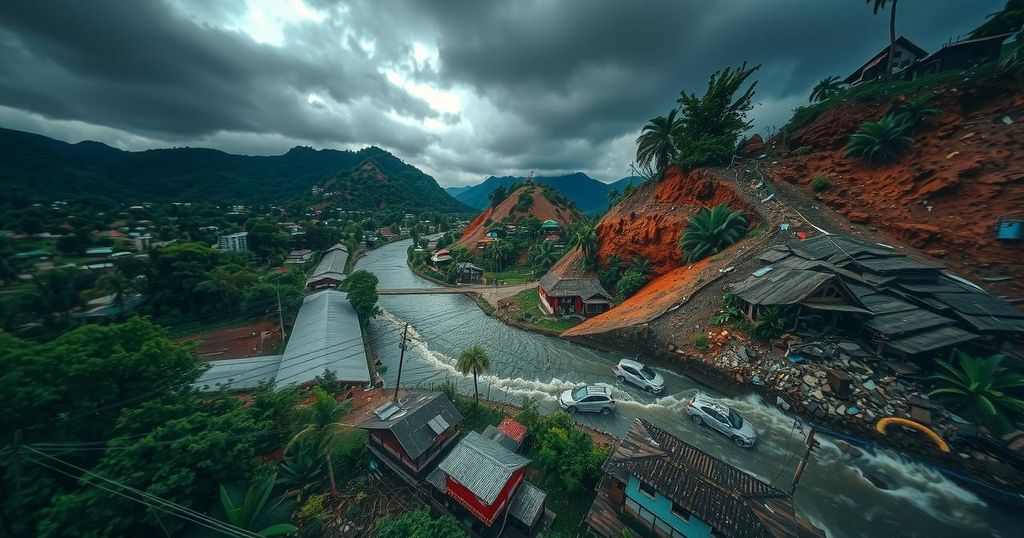Typhoon Usagi Approaches Philippines, Risking Floods and Landslides
Typhoon Usagi, classified as a Category 4 storm, threatens the northern Philippines with severe flooding and landslides. It is the fifth major storm to hit the nation in three weeks, following previous storms that caused over 100 fatalities. This unprecedented meteorological event highlights urgent concerns regarding disaster preparedness in vulnerable regions.
Typhoon Usagi, known as Ofel in the Philippines, is currently advancing toward the northern regions of the archipelago with winds comparable to a Category 4 hurricane. On Thursday, meteorologists issued warnings about the potential for heavy rainfall, which could lead to significant flooding and landslides across affected areas. Usagi represents the fifth substantial storm to impact the country within a three-week span, following the devastation caused by previous storms which together resulted in over 100 fatalities. Additionally, the occurrence of four tropical storms simultaneously in the vicinity of the South China Sea and North Pacific this November marks an unprecedented event in the region’s meteorological history.
Typhoon Usagi arrives as the Philippines grapples with multiple severe weather events, having experienced four storms—Toraji, Trami, Yinxing, and Kong-rey—within a brief timeframe. The cumulative effects of these storms have raised concerns about public safety and environmental stability. The country’s geography, characterized by mountainous terrain and low-lying areas, predisposes it to the dangers of both flooding and landslides during intense rainfall brought on by tropical cyclones. The alarming pattern of storms in quick succession is raising questions about climate variability and preparedness in disaster-prone areas.
In summary, Typhoon Usagi poses a significant threat to the Philippines, particularly in its northern regions, where forecasts predict severe flooding and landslides. The growing frequency of major storms in the area necessitates increased vigilance and preparedness, as well as a reevaluation of response strategies to safeguard communities from the impacts of such natural disasters. Continued monitoring and timely evocation of emergency plans are critical to mitigate the effects of this oncoming storm.
Original Source: www.nytimes.com




Post Comment